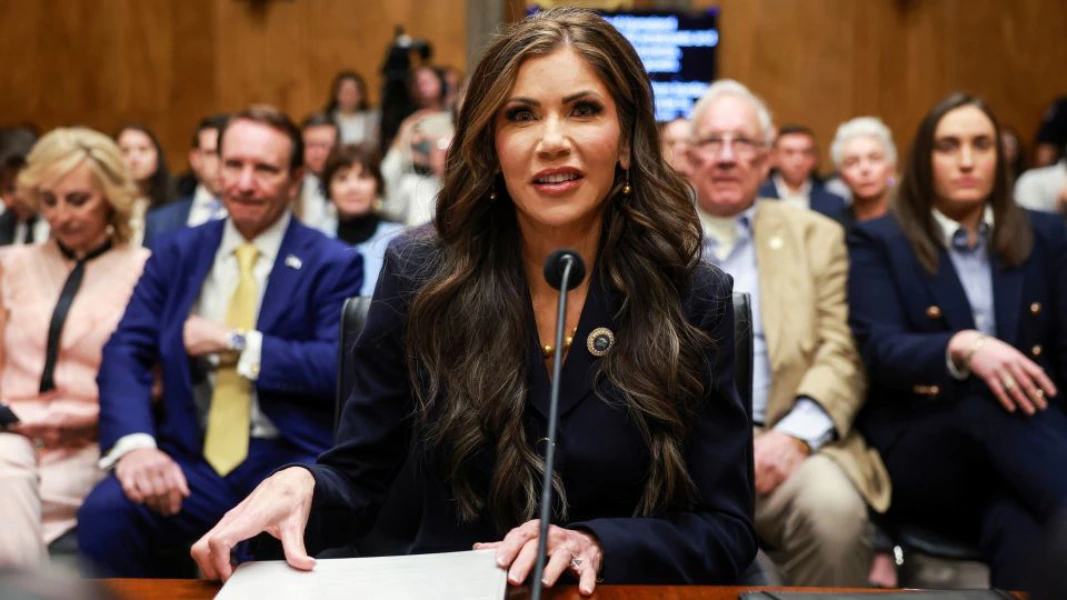In response to rising threats against community and faith-based organizations, Kristi Noem, Secretary of the Department of Homeland Security (DHS), has announced $110 million in security grants. These funds, administered through FEMA’s Nonprofit Security Grant Program, aim to strengthen protection measures for more than 600 faith-based groups across the United States.
The initiative follows a tragic shooting at Annunciation Catholic School in Minnesota, where a 23-year-old shooter killed two children and injured 18 others. DHS emphasizes that proactive security measures can prevent such attacks and protect American communities.

What Kristi Noem’s $110M Security Grants Cover
Kristi Noem’s grant program allows nonprofit organizations and houses of worship to use funds for enhancing physical security. Key uses include:
-
Installation of security cameras and surveillance systems
-
Access control measures, gates, and secure entrances
-
Improved lighting and warning/alert systems
-
Staff training on emergency response and threat awareness
-
Integration of advanced safety protocols for large gatherings
This funding represents roughly 45% of the FY 2025 budget for FEMA’s nonprofit security program, highlighting the federal government’s commitment under Kristi Noem to protecting high-risk organizations.
Legal Considerations for Grant Recipients
Receiving DHS security grants comes with important legal responsibilities:
-
Compliance with Federal Guidelines:
Organizations must adhere strictly to FEMA’s rules regarding how grant money is used. Misuse of funds—for example, diverting them to unrelated projects—could lead to grant revocation, legal penalties, and federal audits. -
Liability for Security Measures:
While enhanced security reduces risk, organizations may still face civil liability if a security breach occurs. Proper documentation of security upgrades, staff training, and incident response protocols is crucial to minimize legal exposure. -
Non-Discrimination Requirements:
Grants are available to faith-based organizations of all religions, including Christian, Muslim, Hindu, Sikh, Buddhist, and Jewish groups. Organizations must ensure equal access and non-discriminatory practices when implementing security policies. -
Reporting and Accountability:
FEMA requires regular reporting on grant utilization. Failure to comply could result in federal investigations, repayment of funds, or additional legal consequences.

Safety Benefits and Strategic Importance
Kristi Noem’s initiative is not only financially significant but also legally strategic:
-
Protects congregants and staff from targeted attacks
-
Demonstrates federal due diligence in community safety
-
Reduces potential civil liability by ensuring organizations follow approved security standards
-
Enhances coordination with local law enforcement and emergency response teams
Experts emphasize that proper implementation of Kristi Noem’s security grants reduces legal and reputational risks for faith-based organizations while actively safeguarding human life.
How Kristi Noem’s Program Connects to Broader Legal Issues
The security grant program intersects with several federal and state legal frameworks:
-
Terrorism Prevention Laws: Organizations receiving grants must ensure compliance with anti-terrorism statutes.
-
Privacy Regulations: Surveillance and access control systems must respect legal privacy boundaries under U.S. law.
-
Civil Liability: In cases of negligence or misuse of security equipment, organizations could face legal claims.
By proactively funding security, Kristi Noem’s DHS seeks to mitigate these legal risks while protecting communities from violent incidents.
Summary
Kristi Noem’s $110 million security grant initiative represents a landmark federal effort to safeguard faith-based and nonprofit organizations. While the funding strengthens physical and operational security, it also carries important legal responsibilities for recipients.
Faith-based organizations and nonprofits must use these grants wisely—following FEMA guidelines, documenting security measures, and training staff—to ensure both safety and legal compliance. Kristi Noem’s program highlights the importance of proactive, federally backed protection measures in an era of increased community threats.
FAQ
Who is eligible for Kristi Noem’s DHS security grants?
Faith-based organizations and nonprofit groups at high risk of attack, including Christian, Muslim, Hindu, Buddhist, Sikh, and Jewish institutions.
What can grant funds be used for?
Security cameras, gates, lighting, access control systems, emergency alerts, and staff training programs.
Are there legal obligations tied to these grants?
Yes. Organizations must comply with FEMA regulations, report on fund usage, and avoid misuse to prevent legal consequences.
How does this program reduce legal risk?
By funding proper security protocols and documentation, organizations minimize civil liability in case of attacks.
Why is Kristi Noem prioritizing this funding?
Following incidents like the Minnesota school shooting, DHS under Kristi Noem aims to protect communities and prevent future violent attacks.

